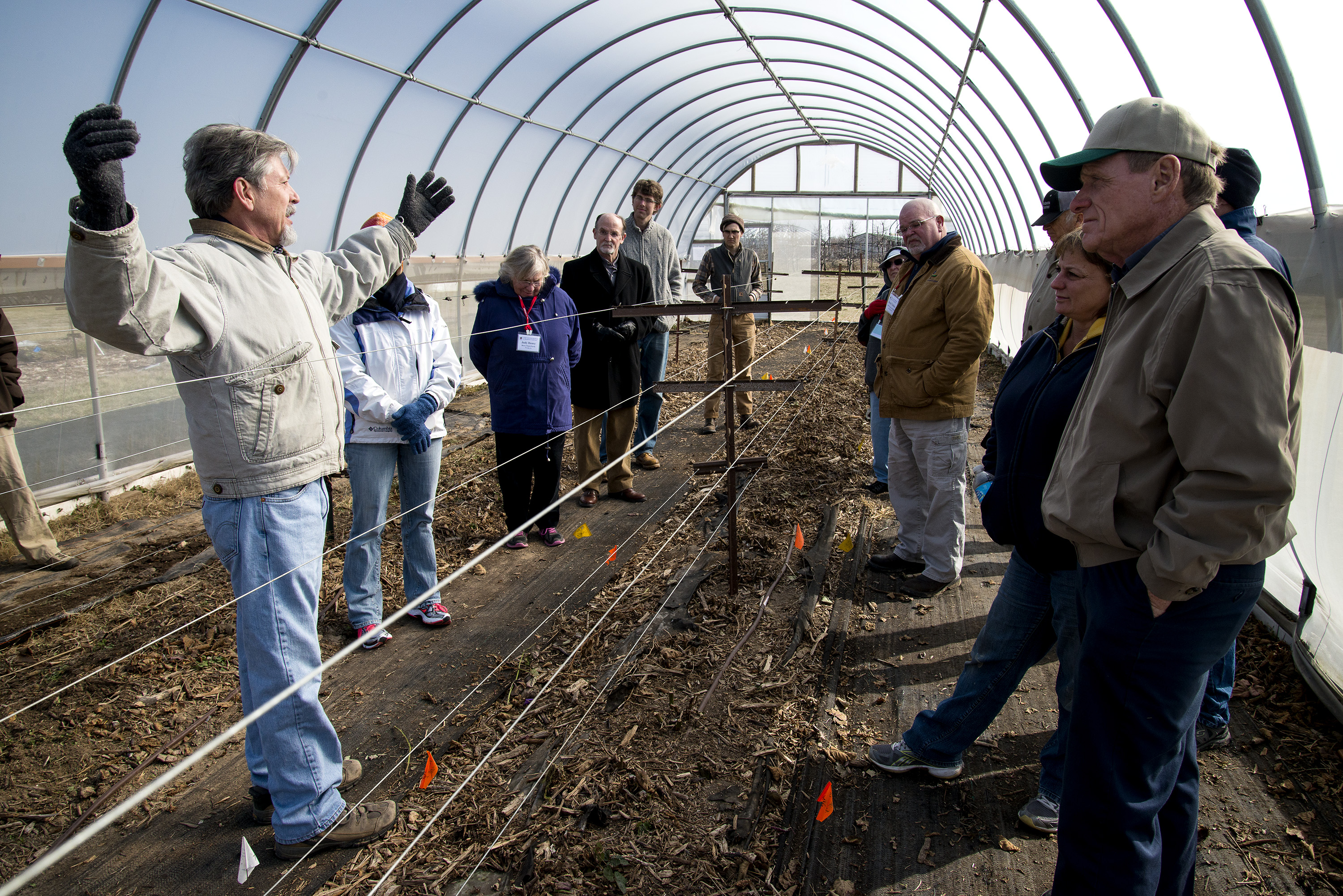
There's a quiet revolution rippling through the world's blackberry plots, one begun in Arkansas.
Blackberries from the University of Arkansas System Division of Agriculture breeding program begun in 1964 by James N. Moore are now grown on every continent except Antarctica, said John Clark, the fruit breeder who has carried on Moore's work.
Today, Clark directs a program that is internationally regarded as one of the top public breeding programs in the world, according to Debby Wechsler, executive secretary of the North American Raspberry and Blackberry Association.
The international association held its annual conference in February in Fayetteville.
"The board met last year to decide where we should hold the 2015 conference," Wechsler said, "and everybody said, 'Let's go to Arkansas, that's where John Clark is.'
"John's varieties are really revolutionary," she said. "To get sweet blackberries as big as your thumb ... that's pioneering."
Wechsler said Arkansas was also attractive because the Division of Agriculture has a host of researchers working on issues important to the berry-growing industry. She noted Ioannis Tzanetakis's use of genetic tools to identify disease-causing viruses, Mike Thomsen's economic studies of the berry industry, Donn Johnson's research on the growing pest problem from the spotted wing drosophila fly and Luke Howard's work on the health benefits of phytochemicals in berries. Curt Rom's work on organic and high tunnel management practices for blackberries and raspberries is also drawing the group's attention, she said.
"There's a lot of important research being done in Arkansas that's important to our industry," Wechsler said. "And as a side benefit, there's a ready pool of conference speakers right here."
Clark, among those speakers, told a standing room only session that Arkansas fruit farms planning to add blackberries to their crops should plant at least half their commercial blackberry plots in the Ouachita variety.
Clark said Ouachita, a 2005 release, has consistent, round berries and sweet flavor. It's adapted to growing conditions coast-to-coast in the U.S. and, in fact, is well adapted to similar climates worldwide. It has excellent storage characteristics and is well suited for shipping.
Although his audience represented berry farms from Canada and Mexico as well as the United States, Clark said he was speaking only for growers in Arkansas and neighboring states, because that was the area he knew best. However, growers in other regions of the U.S. and its neighbors can find blackberries in Arkansas' growing catalog of varieties that will suit their growing conditions.
Clark also noted that the Division of Agriculture also has blackberry varieties that, although not always suitable for commercial purposes, produce consistent, flavorful fruit for home gardeners and local markets.
The North American Raspberry and Blackberry Association was founded in 1985, and its members are growers, researchers, extension workers, nurseries, suppliers, marketers, and others associated with the raspberry and blackberry industry. It has members in 37 states, eight Canadian provinces, and five countries.
Topics
Contacts
Fred Miller, science editor
Agricultural Communication Services
(479) 575-4732,